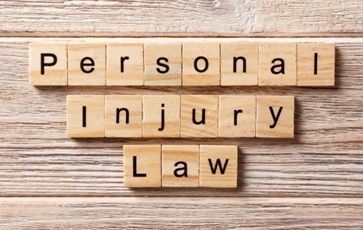Was Your Baby Injured at Birth? What to Know
For many people, the happiest day of their life is the birth of their child. However, that happiness can quickly fade because of birth injuries. Birth injuries are quite common, and while some clear up on their own, others affect your child for the rest of their life. If you want to learn more about birth injuries and who is responsible, keep reading.
What Are Common Types of Birth Injuries?
One of the most common types of birth injuries is cerebral palsy. The condition is from damage to the brain during the birth process by affecting the blood supply and leading to hypoxic episodes. This happens when the doctor or nurses don't monitor you or your baby properly, so they miss fetal distress.
Facial paralysis is another common birth injury, and it is from when too much pressure is on the baby's face during delivery. This is more common if forceps or vacuum extraction are used. During complicated deliveries, bone fractures are common, especially the collarbone. Luckily, this type of injury tends to heal on its own.
The use of forceps during labor can also lead to cephalohematoma. This type of injury is from bleeding under the cranial bone. In some cases, this injury heals on its own but does increase the risk of meningitis, jaundice, and anemia. Caput succedaneum is another condition from forceps, which presents with swelling of the scalp. This condition normally goes away on its own.
What Are the Long-Term Effects of Birth Injuries?
Birth injuries carry a list of long-term effects that can affect your child for the rest of their life. First, any birth injuries that cause physical scarring or deformation may affect your child's mental health, leading to depression, low self-esteem, or anxiety.
Similarly, certain injuries can affect your child's physical mobility, such as facial paralysis. In turn, these can also affect your child's mental health, especially if they are unable to keep up with other kids their age.
Finally, birth injuries like cerebral palsy, oxygen deprivation, or spinal cord injury can lead to a mental impairment, such as a learning disorder or speech impediment. These affect your child's ability to learn and care for themselves. In severe cases, children may need constant care for life.
Who Can Be Held Responsible for Your Child's Birth Injury?
If your baby was injured during the birth process, you can typically hold the doctor responsible. Even if the doctor wasn't there at the time of the injury, they are responsible for monitoring you and your baby. If anyone assisted the doctor at the time of the injury (such as a nurse), they may also be held responsible, especially if they contributed to the injury.
Even the hospital in which the doctor works can be held responsible for your child's birth injury. Because hospitals employ doctors, they are usually vicariously liable for them.
The doctor, nurses, and hospital aren't always the cause of the injury. When you're pregnant, prescription medications can be a double-edged sword because they may hurt your unborn child.
If this happens due to a prescription medication, you may be able to sue the manufacturer if they didn't provide warnings regarding the dangers of the medication on unborn babies. Whether the manufacturer did or did not provide warnings, you may also be able to sue the doctor for prescribing the medication.
If your baby was born with an injury, they may face life-long struggles and major medical expenses. Even though birth injuries are common, this doesn't mean they are normal. If your baby was injured during birth, contact us at the Law Offices of Janice Maloney to see how we can help.




